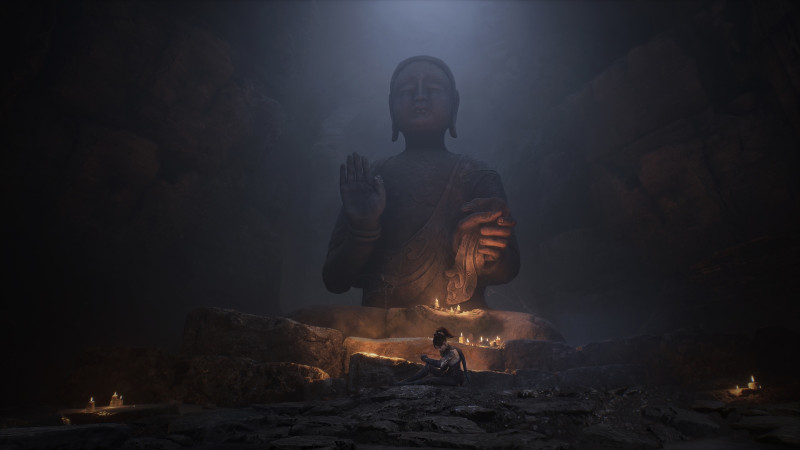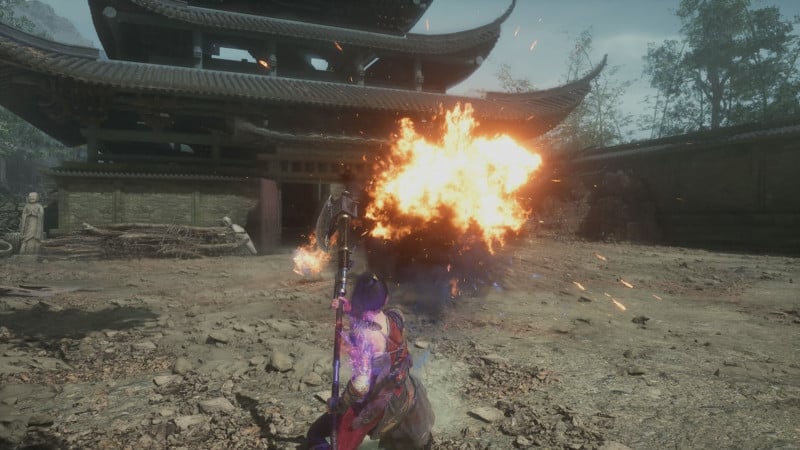The Soulslike subgenre is changing into oversaturated, so it’s tough for brand spanking new takes to face out. Wuchang: Fallen Feathers doesn’t attain the higher echelon of its stronger contemporaries, however it’s a usually well-executed guidelines of style tropes with creative concepts for fight customization and a singular type of dynamic problem scaling.
As Bai Wuchang, you’re a battle-hardened pirate contaminated with a supernatural plague known as the Feathering, which causes victims to remodel into senseless, bloodthirsty beasts. Nevertheless, Wuchang was by some means spared this destiny, however she has misplaced her reminiscence. Because the Feathering sweeps throughout a well-realized Ming Dynasty-era China, it’s as much as you to channel your newfound demonic powers, find the supply of this scourge and eradicate it, discover a remedy, and get better your reminiscences. The story is middling and, in my particular case, wraps up in an abrupt and unsatisfying conclusion, unlocked from a pool of doable endings. Whereas the artwork course is powerful, Wuchang suffered fluctuating graphical constancy and efficiency (enjoying on a base PS5) that typically bordered on unacceptably dangerous, hampering the expertise.
Fight shines most on this journey by drawing inspiration from Bloodborne. Battles are an often-entertaining dance of aggressively attacking foes whereas evading injury to remain inside attain. Effectively-timed evades reward mana factors known as Skybound May, used to forged spells. I like how Wuchang incentivizes skillful evasion on this manner, and successful a battle solely by dodging and retaliating with spells, comparable to lobbing a crimson spear or a fiery cranium, is a viable (and typically smart) technique.
Wuchang offers gamers a near-overwhelming variety of methods to tailor their playstyle via numerous weapons (together with giant talent timber for each), augments, and passive perks. You may equip weapons with three perk-granting stones, which in themselves are available in numerous varieties. Slotting as much as 4 “needles” into Bai Wuchang’s demonically feathered arm bestows weapon “tempering” results, like growing hearth injury or including a health-leeching impact to assaults. A neat weapon-swapping mechanic unleashes a singular particular assault relying on the instruments outfitted, including one other wrinkle to contemplate when selecting which two weapons to equip. It’s loads to soak up, and whereas I want Wuchang didn’t throw all of its options at gamers in relative quick order – firmly greedy every little thing took some time – I like how the sport encourages a number of playstyles and harder encounters usually require shaking up your loadout or technique.
Weapon courses, together with lengthy swords, spears, and axes, sport distinctive particular assaults and traits. For instance, Wuchang can’t block inherently, however axes grant this potential for extra defensive-minded gamers. Those that would relatively depend on spells ought to lean on magic-centric quick swords. By sparingly introducing new weapons, Wuchang permits gamers to develop into intimately aware of what they’ve, and development revolves round enhancing proficiency with chosen arms; I a lot choose this to usually biking via new loot.
Nevertheless, the huge, Path of Exile-inspired talent timber imply you’ll be able to’t freely enhance essential traits, like stamina and well being, since you’ll be able to solely unlock stat buffs in a predetermined order. This feels extra restrictive than I’d like, and I didn’t like spending 1000’s of talent factors unlocking a particular transfer I didn’t need/want simply to seize as many +1 stamina upgrades as doable alongside the best way.

Repeatedly dying builds a meter known as Insanity that raises your assault whereas growing injury taken. Failing primarily makes you a glass cannon, and I like how Insanity dynamically adjustments the stakes of encounters by giving me an edge whereas forcing me to sharpen my evasion/counter expertise to nullify my weakened protection. When Insanity peaks, a mini-boss spawns within the type of an “Inside Demon” instead of fallen XP; beat her, and you then get your factors again. This can be a enjoyable and devious punishment that provides much more rigidity and pleasure to the train of XP retrieval, although the Inside Demon grew to become much less threatening as I grew stronger.
Wuchang’s neat concepts are wrapped round an in any other case acquainted, if unremarkable, design core. Exploring the usually corridor-like biomes, from a snowy palace to a hellish forest, and slicing down foes is a paint-by-numbers train of unlocking shortcuts and discovering hidden gadgets off the overwhelmed path, with some annoyingly unfair stage hazards sprinkled about. Whereas robust in the best way you’d count on from the style, Wuchang is what I’d describe as “comfortably tough:” onerous sufficient to really feel some sense of reward, however by no means overwhelmingly so. Most boss encounters took me fewer than 5 or 6 makes an attempt to topple, and larger challenges have been defeated via a mixture of pure finesse and light-weight stage grinding. As a Souls fanatic, it’s nearly cozy how manageable Wuchang finally is (comparatively talking), however that does make its larger clashes much less outstanding or memorable.

That final level is my greatest takeaway from Wuchang. It’s very competent and pleasurable, however a lot of it looks like Soulslike junk meals; tasty with a couple of neat concepts, however nothing will persist with me in comparison with extra substantial choices. Wuchang: Fallen Feathers might not revolutionize the style, but it surely’s a superb rendition of a favourite music.


